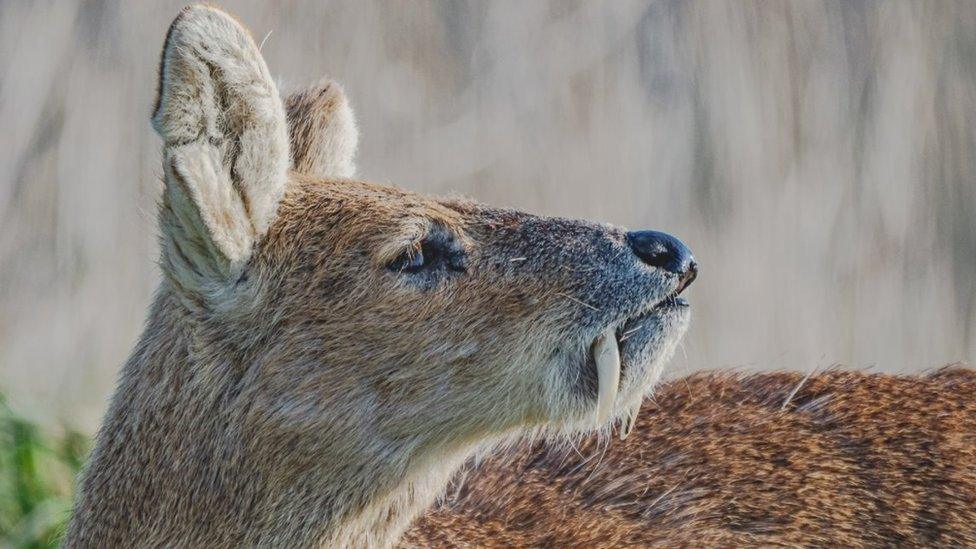'Agroforest' trial begins at RSPB's arable farm
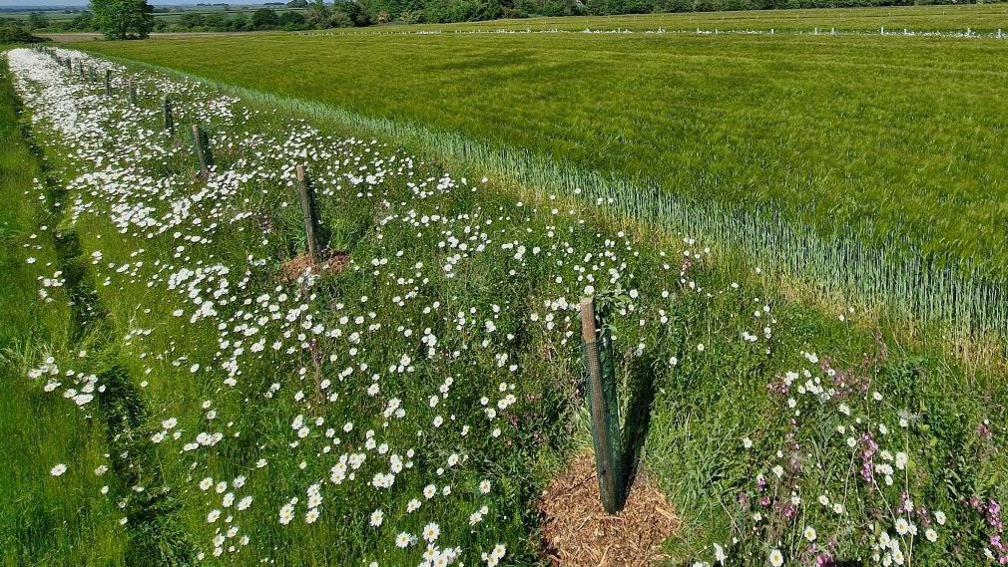
Thirteen varieties of apple trees, all juicing varieties, have been planted on the farm alongside cobnut and broadleaf trees
- Published
More than 1,000 apple, cobnut and broadleaf trees have been planted on an RSPB farm to discover whether agroforestry could be a "useful tool for farmers".
The trees were planted on an 11 hectare (27 acre) site at the charity's arable farm, between Papworth Everard and Cambridge, in 2022.
The long-term project will be monitored for biodiversity, greenhouse gas fluxes and business viability, said assistant farm manager, Sophie Arnold.
She said not enough was known about what an agroforest does or does not deliver in terms of "trade-offs and benefits" within the UK's farming system.
An agroforest uses strips of crop-producing trees alongside arable crops.
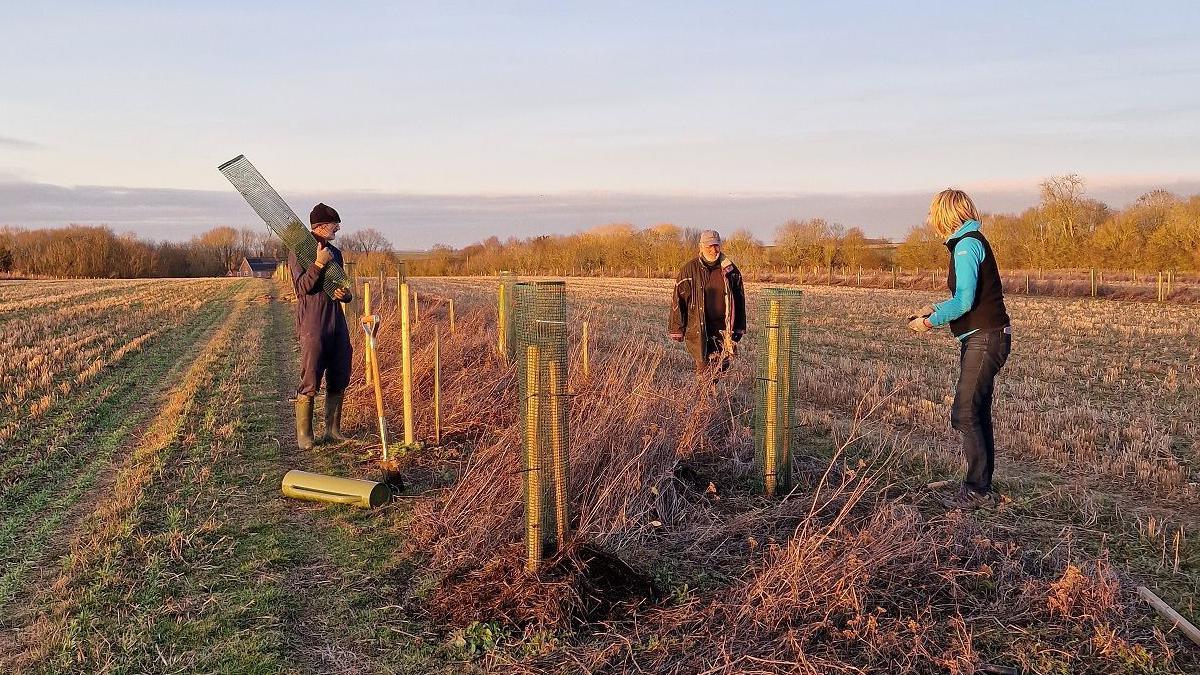
Many of the cobnut trees needed replanting the following year after an unprecedented drought in 2022
"The long term hope would be that by putting agroforestry on the farm, we have diversified the farm business so that it could actually be a useful tool for farmers to be a little bit more resilient when farming's becoming increasingly more difficult," said Ms Arnold.
"We've planted three different types of trees - 13 varieties of apples, all juicing varieties, three varieties of cobnuts, which is a commercial type of hazel which can hopefully be pressed for cobnut oil, and eight species of native broadleaves."
The native trees will help protect the cropping species from "the big rolling winds that come through our flatland Cambridgeshire landscape", she added.
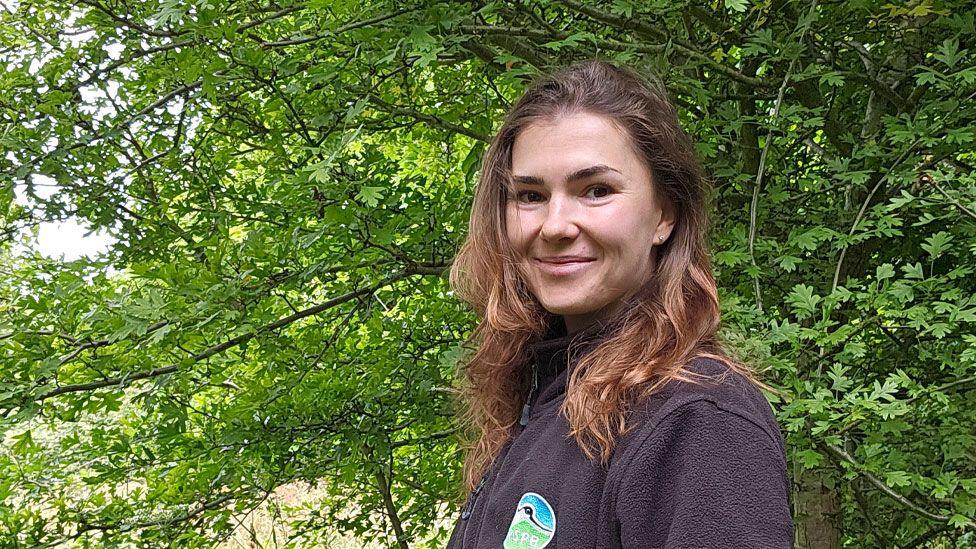
It is hoped the agroforest will also support pollinators and struggling ground-dwelling species such as grasshoppers and ladybirds, said Sophie Arnold
They have been planted in eight six-metre (26ft) alleys, 24 metres (78ft) apart, on the RSPB's Hope Farm, which it bought in 2000.
The charity took on the 181 hectare (447 acre)-farm to provide research-led evidence it was possible to encourage wildlife-friendly farming in one of the most intensively farmed bread baskets of England, alongside producing food and making a profit.
Today, 18 farmland birds are based on the farm, external, such as the linnet, yellowhammer and skylark, while others like lapwings, grey partridges and corn buntings have returned.
All are on the UK "red list" of endangered species, external.
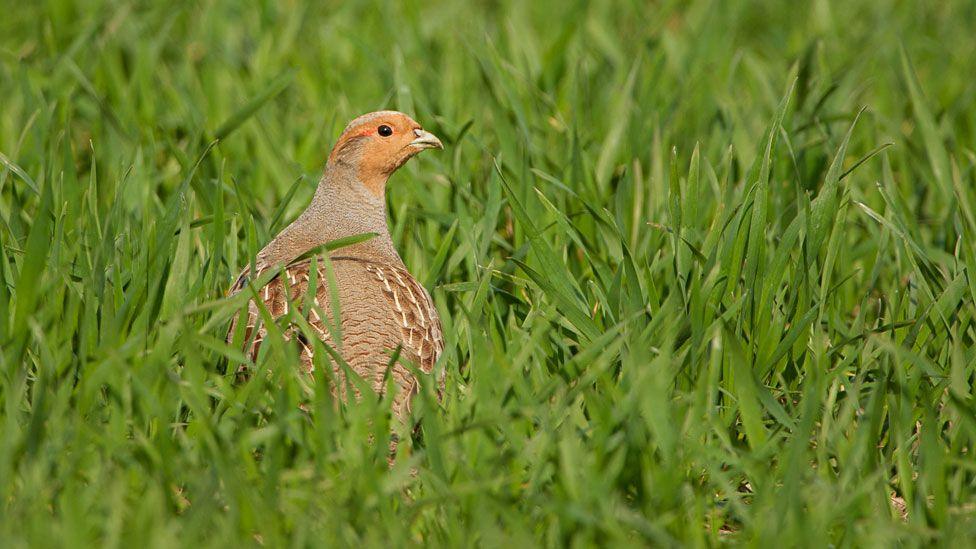
Nature-friendly farming practices at Hope Farm have led to a 226% increase in breeding birds, and a 213% increase in farmland butterflies since 2000, according to the RSPB
The RSPB set up the trial at Hope Farm as "the impact that some agroforestry practices may have on biodiversity is not well evidenced" - at a time of national tree-planting plans.
Ms Arnold said there will be "rigorous monitoring" of the agroforest "over biodiversity, the greenhouse gas fluxes, the business changes and diversity".
"We aim to get a really thorough understanding of what it actually delivers before we could advocate for or against it in a policy sphere," she said.
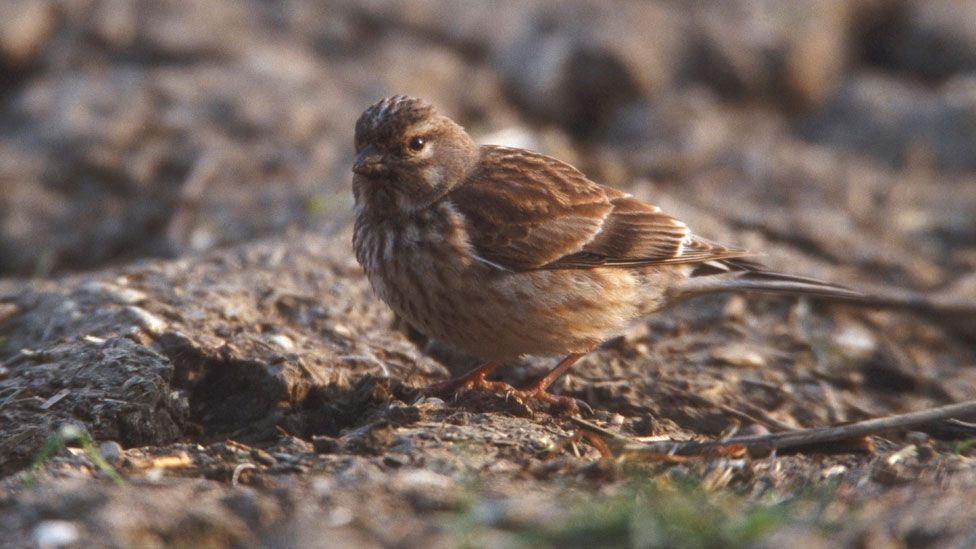
The endangered linnet (above) is thriving on the farm, which rotates winter wheat, spring and winter barley, oil seed rape, winter beans and spring oats
Follow Cambridgeshire news on Facebook, external, Instagram, external and X, external. Got a story? Email eastofenglandnews@bbc.co.uk, external or WhatsApp us on 0800 169 1830
Related topics
- Published27 June 2024
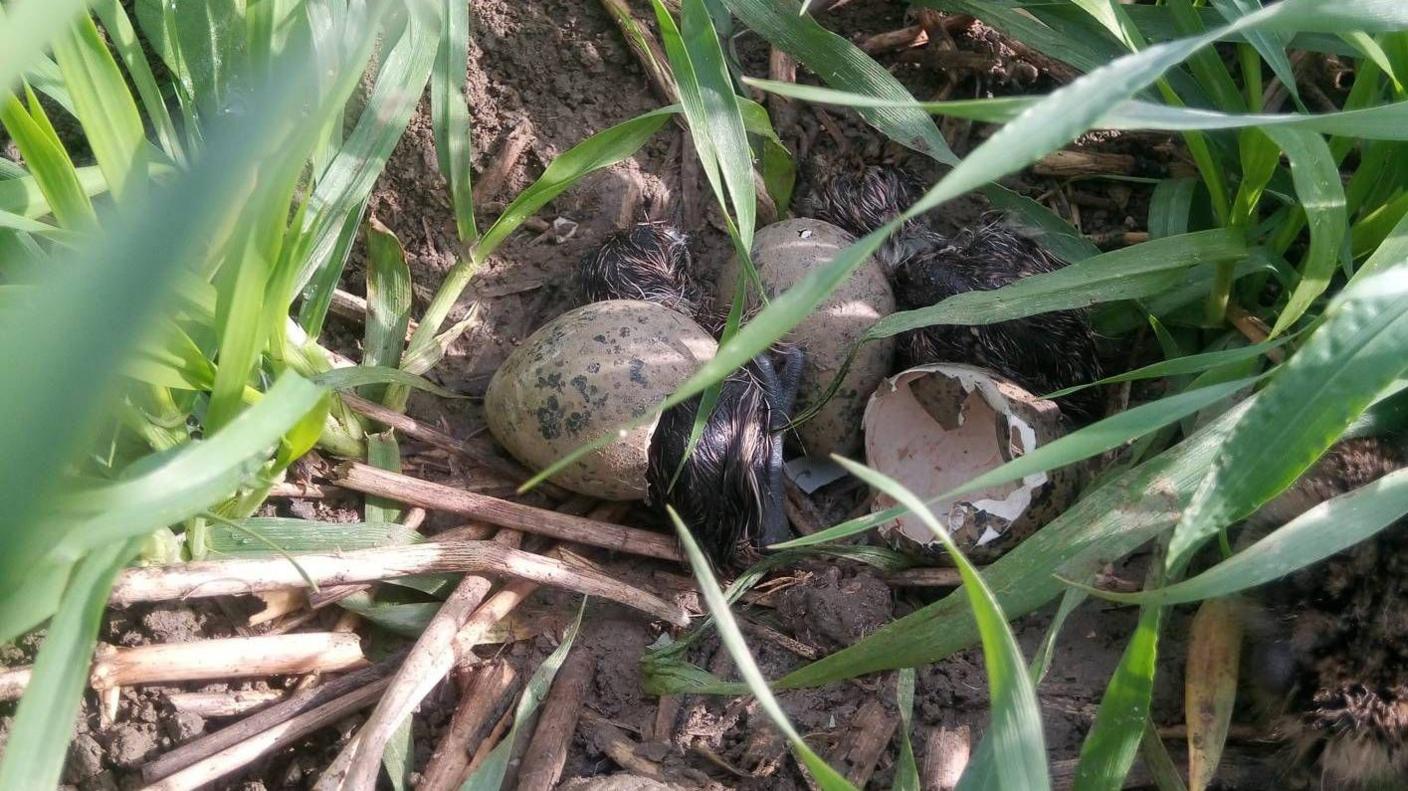
- Published2 March 2024
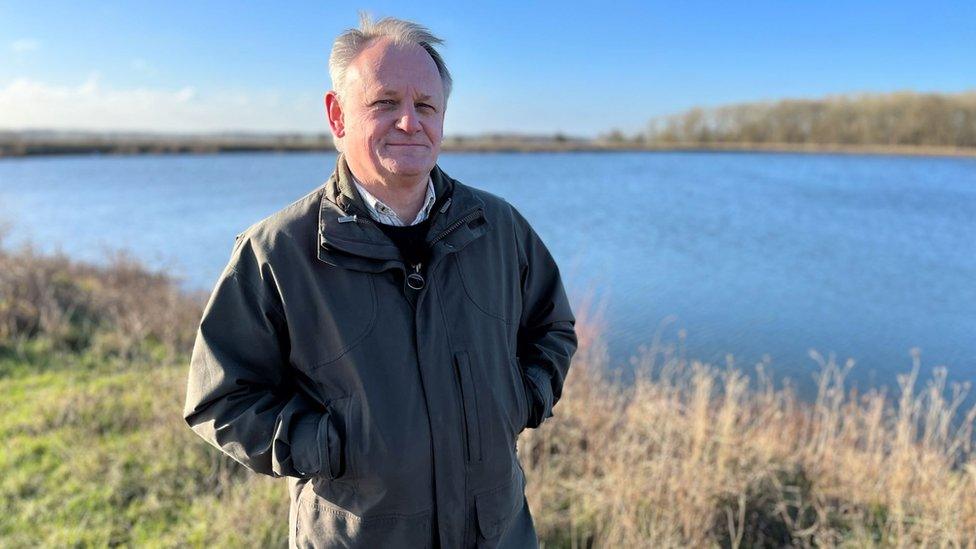
- Published29 March 2024
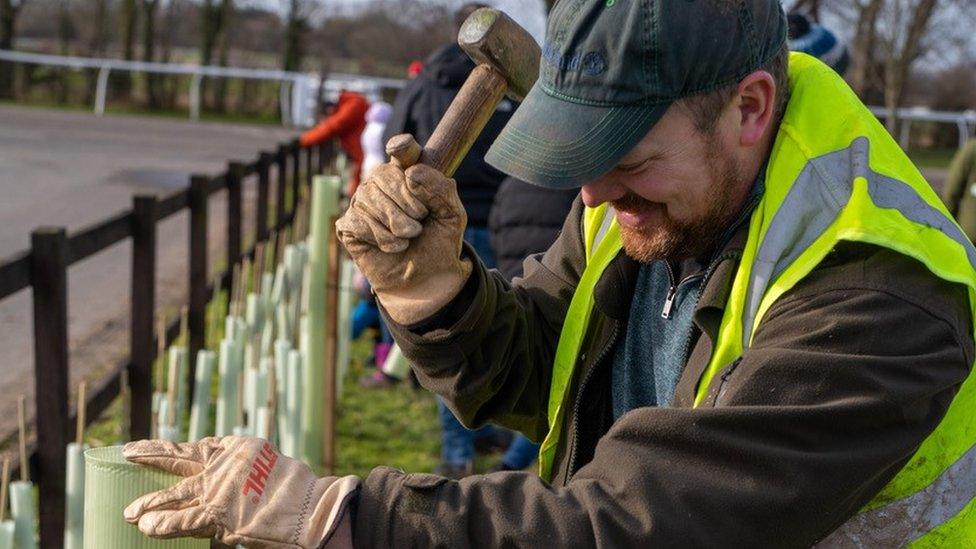
- Published22 March 2024
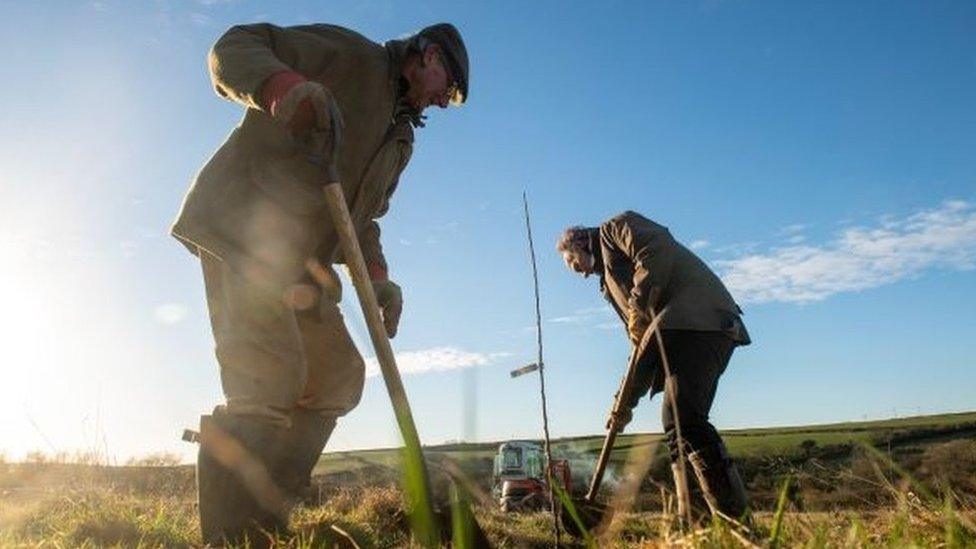
- Published10 January 2022
